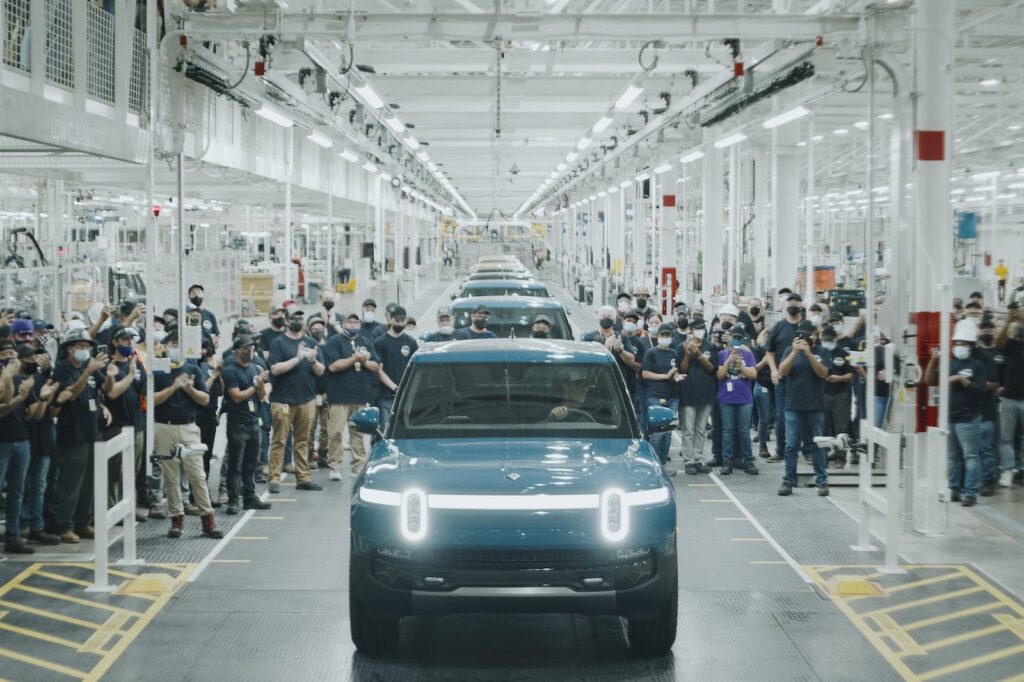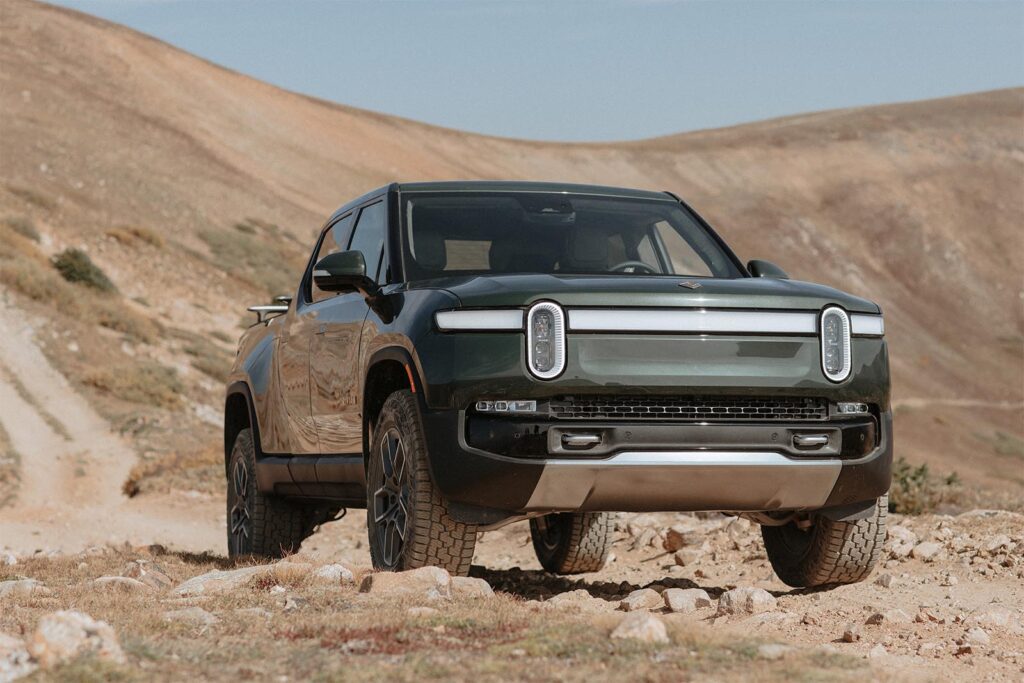Rivian Delays Worry Customers — And Investors
Rivian will delay by at least a year delivery of its all-electric pickups and SUVs equipped its long-range battery pack, CEO RJ Scaringe advised customers this week.

The news came as a disappointment to buyers hoping to equip their vehicles with the Max pack, which the automaker claims can deliver as much as 400 miles of range per charge. But the news also was a setback for Rivian shares, investors already concerned that production snags will slow deliveries of the R1T pickup and R1S sport-utility vehicle.
The Max pack now won’t make it into production until 2023, according to Scaringe. Until then, buyers still will have the option of getting vehicles equipped with a mid-range “Large” lithium-ion pack capable of delivering an EPA-estimated 314 miles between charges.
“Max” pack, maximum wait
About 20% of customers have been ordering the Max pack, according to Rivian, so the impact of the production snag is relatively modest.
But Rivian indicated it is going to reduce guidance on its planned deliveries for the coming year. And it will take longer for the company to work through the 71,000 advance orders it had taken as of Dec. 15, according to Scaringe.
“In order to serve the largest number of preorder holders, we will be prioritizing building the Adventure Package with Large pack battery during the next year,” the CEO said in his e-mail to customers. “Explore Package preorders and vehicles with a Max pack battery configuration will follow in 2023. In setting our delivery timing, we optimized our build sequence around the build combination that would support us ramping as quickly as possible and therefore have the largest possible positive climate impact.”

Wall Street roller coaster
The news didn’t sit well on Wall Street where investors were already second-guessing their early optimism about Rivian.
The automaker went public Nov. 10 under the sticker “RIVN.” The stock opened at $78, but shares quickly surged as high as $179.47 before settling back. It has ridden a roller-coaster this week, dipping as low as $94.75 a share, though it began rebounding on Thursday above the $102 mark.
At its current price, the startup has a market capitalization of more than $92 billion. That’s nearly $10 billion higher than Ford Motor Co., one of its early investors. Another early investor was Amazon which has helped buoy the nascent EV maker by ordering 100,000 Rivian electric vans for the Prime delivery service.
Startup snags aren’t uncommon
Rivian is by no means the only EV newbie facing production challenges. Tesla has been late to market with virtually every new vehicle. It hit its start date with the Model 3 sedan but then went through what CEO Elon Musk described as a year of “production hell” resolving factory snags.

As the current rebound in Rivian’s stock price suggests, investors can be forgiving with early startup snafus. The question is whether customers will be equally tolerant.
The Rivian R1T has generated plenty of early buzz. It was named MotorTrend Truck of the Year and is one of three finalists for North American Truck of the Year. But there have been reports of glitches with the pickup’s software and suspension.
Competition coming
Meanwhile, it is facing a flood of competition. General Motors has also launched its new GMC Hummer EV, though the truck will only be available for now in a much more expensive launch edition. Ford is set to introduce the more affordable F-150 Lightning in mid-2022 and Chevrolet will pull the wraps off an all-electric version of its Silverado pickup during CES next week.
GMC will add a second electric pickup, a version of its Sierra. Stellantis is preparing a battery-powered Ram, and Toyota has confirmed it is developing an all-electric truck. A number of startups, including Atlis, Bollinger and Lordstown, also are aiming at the segment, though not all are expected to make it to market.
Auto Lovers Land
Comments
Post a Comment